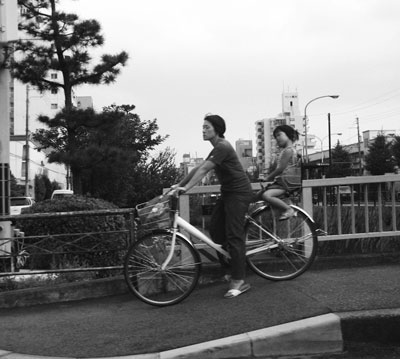All Nonfiction
- Bullying
- Books
- Academic
- Author Interviews
- Celebrity interviews
- College Articles
- College Essays
- Educator of the Year
- Heroes
- Interviews
- Memoir
- Personal Experience
- Sports
- Travel & Culture
All Opinions
- Bullying
- Current Events / Politics
- Discrimination
- Drugs / Alcohol / Smoking
- Entertainment / Celebrities
- Environment
- Love / Relationships
- Movies / Music / TV
- Pop Culture / Trends
- School / College
- Social Issues / Civics
- Spirituality / Religion
- Sports / Hobbies
All Hot Topics
- Bullying
- Community Service
- Environment
- Health
- Letters to the Editor
- Pride & Prejudice
- What Matters
- Back
Summer Guide
- Program Links
- Program Reviews
- Back
College Guide
- College Links
- College Reviews
- College Essays
- College Articles
- Back
Hapiness Has a Price
Joyful bliss and community acceptance, a utopia, is found in a place like Omelas, but the best happiness is always paired with the worst despair in “The Ones Who Walk Away From Omelas by Ursula Le Guin”. The Ones Who Walk Away From Omelas, is set in a futuristic utopia full of joy and happiness where everyone loves one another. There is however, a terrible price, the life time suffrage of a child. Three key topics of this story include: the price of Omelas, the knowledge of the price, and the understanding for the child’s suffering.
The price of Omelas’s happiness is that of a child’s happiness. Not only does the child suffer from the absence of happiness, but the child tolerates complete and utter maddening despair. This child pays too much for the society’s joy, and it deserves an escape from its current life so that it may be saved. In “The Ones Who Walk Away From Omelas, people watch as the child sits in its own excretments wanting to help, but never do for fear for their own happiness” If they free the child the people of Omelas may be able to sleep soundly again, but even this will not forgive Omelas for their sins and the abuse of a child for their own well being.
Maybe it would be wrong to convict all of Omelas for their sins against this child, if only they did not all know about the child! They learn at a young age of eight to twelve that the child is suffering for them, and they still let the child endure its wrongful punishment. Most choose to ignore it, but some visit the child and even wish to help with all their hearts. They do not because the fear they feel for themselves and their community outweight their desire to free the child. Pray for those who sit by and watch or know of the child, the people of Omelas. )CORRECT_
Denying the child’s suffering, the people go as far as to convince themselves that the child needs to be there. Not even attempting to understand why, but they understand that their happiness depends entirely on this child’s misery. Complete happiness cannot understand or experience misery, so how can one exist without the other? Only by the sacrifice of one person, a price to high even for the lasting joy and happiness of a million people, the people of Omelas.
Remember the best happiness is always paired with the worst despair for they are always together. The price of Omelas, the knowledge of the price, and the understanding for the child’s suffering is too much for Those Who Walk Away From Omelas. Do not go looking for the bright sun shine instead look for half light and half dark because light is never pure or free.

Similar Articles
JOIN THE DISCUSSION
This article has 0 comments.
